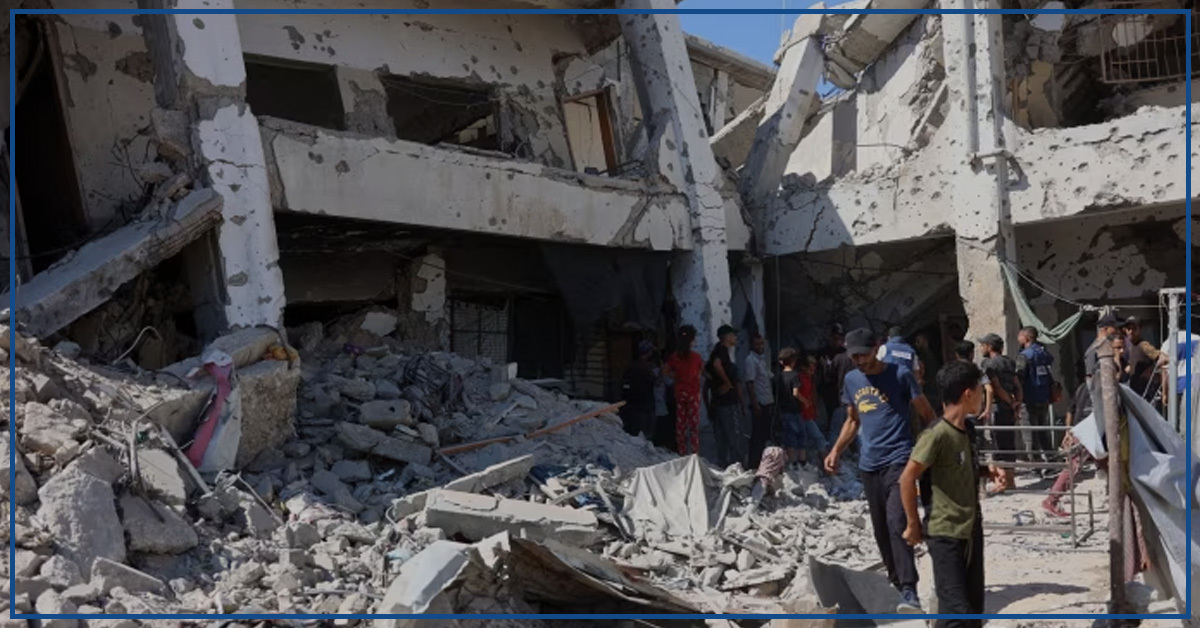The United States, Egypt, and Qatar are intensifying diplomatic efforts to secure a ceasefire and a hostage deal between Israel and Hamas, as tensions continue to escalate in the Middle East. This push comes amid growing concerns that the region could spiral into a broader conflict, especially after the recent targeted killings of senior militant leaders by Israel.
US President Joe Biden, Egyptian President Abdel Fattah al-Sisi, and Qatar’s Emir Sheikh Tamim bin Hamad al-Thani issued a joint statement urging Israel and Hamas to resume urgent negotiations in Doha or Cairo to resolve the remaining obstacles and swiftly implement a ceasefire agreement. The leaders emphasized the need for immediate action, setting a date for talks to resume next Thursday, with a promise to present a bridging proposal if necessary to close the remaining gaps.
The ceasefire talks have been ongoing for months, mediated by Washington, Cairo, and Doha, but have stalled repeatedly due to deep-seated mistrust and conflicting demands from both sides. The assassination of Hamas’s political leader Ismail Haniyeh in Tehran and Hizbollah’s military chief Fuad Shukr in Beirut—both strikes believed to be carried out by Israel—have only heightened the urgency. These high-profile killings have led to fears of a wider regional war, particularly as Iran and Hizbollah, both allies of Hamas, have vowed to retaliate.
The US and its allies are particularly concerned about the potential for a significant escalation if Iran responds with a direct attack on Israel. A senior US administration official warned Tehran that any such action would have severe consequences, including potential damage to Iran’s economy and broader stability in the region. “We’re doing all we can to deter such an attack, to defeat it if it comes, and to show Iran that there’s a better path forward than military conflict,” the official said.

Despite these diplomatic efforts, progress has been slow. The Biden administration has grown increasingly frustrated with Israeli Prime Minister Benjamin Netanyahu, who has introduced new conditions that have complicated the negotiations. In late May, Biden endorsed a multiphase ceasefire agreement and urged Netanyahu to move forward with the proposal during a visit to Washington in July. However, Netanyahu has been reluctant to agree to any deal that might limit Israel’s military operations, despite his security chiefs advising that a ceasefire is in Israel’s interest.
One of the major sticking points has been Hamas’s insistence that any agreement must include an upfront guarantee for a permanent end to the conflict. Netanyahu has refused to consider this, leading to months of deadlock. However, before Haniyeh’s assassination, Hamas had shown some flexibility, agreeing to postpone discussions on a permanent resolution until after the first phase of the ceasefire was implemented. Netanyahu’s subsequent introduction of tougher conditions, however, has further stalled the talks.
The situation was further complicated by the assassination of Haniyeh, who had been leading Hamas’s negotiations. His death was seen as a significant setback to the peace process, and Hamas’s decision to appoint Yahya Sinwar, the mastermind behind the deadly October 7 attacks, as Haniyeh’s successor, has raised concerns that both sides may harden their positions.
Diplomats involved in the negotiations are cautiously optimistic but recognize that a breakthrough will depend largely on Netanyahu’s willingness to compromise. A diplomat briefed on the talks noted that Hamas has given “positive indications” about the upcoming meeting, but warned that Netanyahu’s insistence on new conditions could still derail the process. “The problem is Netanyahu’s rigidity,” the diplomat said. “If the Americans can convince him to accept some of these compromises, there might be a chance for a deal.”
As the negotiations approach, the stakes are incredibly high. Israel has announced that it will send mediators to next week’s talks, signaling a recognition of the need to find a resolution. The US, Egypt, and Qatar are working intensively to ensure that both sides come together to resolve the key issues that remain unresolved.
The potential for a ceasefire and hostage deal is seen as the only viable path to de-escalating the conflict in Gaza and preventing a broader regional war. However, the situation remains highly volatile, and much will depend on the willingness of all parties to make the necessary compromises. The US and its allies are keenly aware of the lives at stake, particularly the hostages taken by Hamas, and are pushing for an agreement to be reached as quickly as possible.
Adding to the complexity, Iran’s new president, Masoud Pezeshkian, warned in a recent phone call with French President Emmanuel Macron that if the US and its allies want to avoid “war and insecurity in the region,” they must pressure Israel to accept a ceasefire in Gaza. This statement underscores the broader geopolitical implications of the ongoing conflict and the delicate balance that negotiators must navigate to achieve a peaceful resolution.
As the Middle East braces for the outcome of these negotiations, the international community watches closely, hoping for a breakthrough that could prevent further bloodshed and pave the way for lasting peace in the region.





